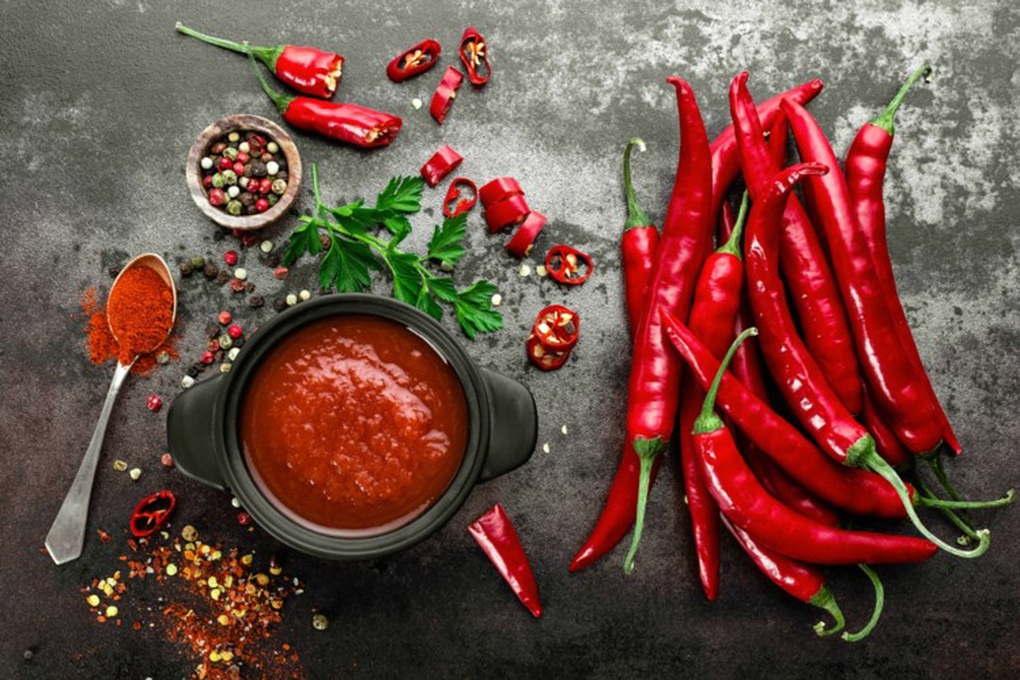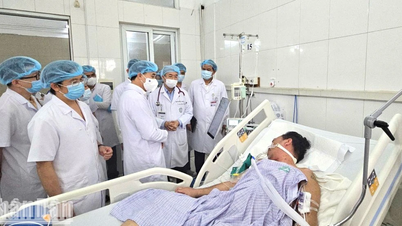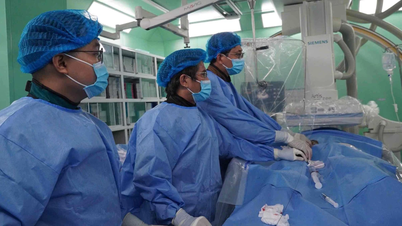Chili is a familiar ingredient in the daily meals of Vietnamese people. Not only does it enhance the flavor of dishes, but it is also scientifically recognized to have the ability to reduce blood fat, protect the heart and even help prevent cancer. This comes from a special compound in chili: capsaicin.
Eating spicy food properly - the "nemesis" of blood fat
Hyperlipidemia, also known as dyslipidemia, is a condition in which there are increased levels of "bad" cholesterol (LDL) and triglycerides in the blood, causing fatty deposits in the blood vessel walls, thereby increasing the risk of atherosclerosis, heart disease and stroke. Treatment of hyperlipidemia often requires a combination of medication, diet and exercise.
Eating spicy food in moderation has been shown to have many health benefits (Photo: Getty).
However, good news for spicy food lovers is that chili - a cheap, popular fruit - can be a "natural medicine" to help control blood fat.
According to research published in Frontiers in Nutrition , capsaicin - the compound that gives chili peppers their spicy taste - has shown significant effectiveness in reducing total cholesterol and LDL after analyzing data from nine clinical trials with 461 patients with metabolic syndrome.
Scientists found that short-term capsaicin supplementation (less than 12 weeks) was particularly effective in women, helping to reduce blood triglycerides - an important factor in controlling blood lipids.
Reduce the risk of death from heart disease
Not only does it improve blood counts, chili peppers have also been shown to be linked to a reduced risk of death from cardiovascular disease.
A large study published in the Journal of the American College of Cardiology followed more than 22,000 people in southern Italy for more than eight years. The results showed that people who ate chili peppers more than four times a week had a 33% lower risk of dying from heart disease than those who did not.
Interestingly, the cardioprotective benefits of chili peppers were independent of the Mediterranean diet, which is considered to be the most heart-healthy diet, suggesting that capsaicin may play an independent role in protecting heart health.
Positive impact on longevity
Another analysis published in the journal Angiology compiled data from 564,748 participants in studies lasting an average of 9.7 years. The results showed:
- People who eat spicy food regularly have a 12% lower risk of death from all causes than people who eat less spicy food.
- The risk of death from cardiovascular disease is also significantly lower.
However, the study did not find a clear benefit of spicy food consumption on cerebrovascular disease. The authors called for more research to confirm this link in different populations.
Support against cancer and obesity
Not only beneficial for the heart, capsaicin is also noted to have anti-inflammatory effects, support weight control and prevent cancer.
A publication in the journal Molecules shows that capsaicin has the ability to prevent obesity, support cholesterol reduction and even inhibit the growth of some cancer cells. In addition, this compound is also used in the treatment of arthritis thanks to its natural pain-relieving properties.
How to eat chili properly?
While chili peppers have many benefits, consuming too much hot peppers or high concentrations of capsaicin can cause stomach irritation, acid reflux, and digestive upset in some people. Therefore, nutritionists recommend:
- You should eat chili in moderation, depending on each person's tolerance for spicy food.
- Combine chili with a varied diet, rich in green vegetables, fatty fish and whole grains.
- If you have a history of stomach or digestive problems, consult your doctor before increasing the amount of chili in your diet.
Source: https://dantri.com.vn/khoa-hoc/khoa-hoc-bao-loat-tin-vui-cho-nguoi-thich-an-cay-20250512072034791.htm




![[Photo] Prime Minister Pham Minh Chinh receives Swedish Minister of International Development Cooperation and Foreign Trade](https://vphoto.vietnam.vn/thumb/1200x675/vietnam/resource/IMAGE/2025/5/12/ae50d0bb57584fd1bbe1cd77d9ad6d97)


![[Photo] Prime Minister Pham Minh Chinh works with the Standing Committee of Thai Binh Provincial Party Committee](https://vphoto.vietnam.vn/thumb/1200x675/vietnam/resource/IMAGE/2025/5/12/f514ab990c544e05a446f77bba59c7d1)
![[Photo] Prime Minister Pham Minh Chinh starts construction of vital highway through Thai Binh and Nam Dinh](https://vphoto.vietnam.vn/thumb/1200x675/vietnam/resource/IMAGE/2025/5/12/52d98584ccea4c8dbf7c7f7484433af5)




















































































Comment (0)